We’re excited to introduce you to the always interesting and insightful Ike Flitcraft. We hope you’ll enjoy our conversation with Ike below.
Ike, thanks for taking the time to share your stories with us today Can you talk to us about how you learned to do what you do?
I went to a university with a small media department in which I learned the basics of editing and shooting and that was about it. Though they used my tuition to build it a year after I left, they did not yet have a film department yet. And so anything I know about scriptwriting I taught myself. Luckily, that very same university had peers who were off the charts talented. In fact I remember some of them basically teaching the classes they were in. Our professors did however offer us two majorly important things: access to the gear, and an assurance that we were only ever going to learn by doing. And so that’s what we did. My university afforded me the chance to write and direct for their massive yearly sketch show. This included films, live music, marketing, months of rehearsal, running a writers’ room, getting our sketches approved by the university, etc. I learned quick and early that I’d never answer the question “what do you do”. To this day my philosophy is to be an 8/10 for every skill possible and sharpen whichever one the project you’re on calls for. then surround yourself with people who are 9s and 10s out of 10 at their primary skill and defer to them in anything that doesn’t compromise the grander vision. This I also learned producing work at my college. I set the bar way too high. The goals were unattainable. And we blew them out of the water anyway because all of us were massively talented, had eachothers’ backs, and were too dumb to know we’d bitten off more than we could chew. The feeling I got the night of that show listening to 1200 people laugh at what we’d done for the first time is a feeling I’m still chasing all these years later. It set me on a course of developing my individual skills in Chicago, Los Angeles, and eventually even Utah. But nothing will ever teach you more than what you learn on the fly trying to solve problems with your peers. This is where innovation lies. Mentors and teachers and comedy classes and handbooks can only teach you the old ways. The debt I financial and emotional debt I owe my university and the comedy theatres I’ve taken classes at is the price only of meeting the incredible other students there. These are people I’ve clung to for a decade now. And I still learn from them every day. The skills came with me too. The random strategies and tricks we developed together as a rag tag team would later be inflicted upon writers’ and editors at the sketch show with a million dollar budget I worked at. And they worked like a charm.
In retrospect, I could have sped up the learning process by slowing down my life between those college days and where I am now. That may seem counter-intuitive but I now know it to be true. Since I’ve allocated only half my day to my craft and more and more to my home and hobbies, my career has started moving much faster. Your craft is important but progress is made when your personal life is in order. When you are healthy and balanced the relationships you form last longer and are deeper and propel you forward faster. Likewise you have more energy to give to what you’re doing. And you’re more receptive to growth and evolution in your craft because you value your time doing it more. When I was in my 20s, sleepless weeks and grinding on comedy 24/7 was a usual thing to do. I’ve grown forgiving of this chapter now. But if I’d gotten my house in order sooner, perhaps I’d have had a more solid base to make sure some of my projects led to more.
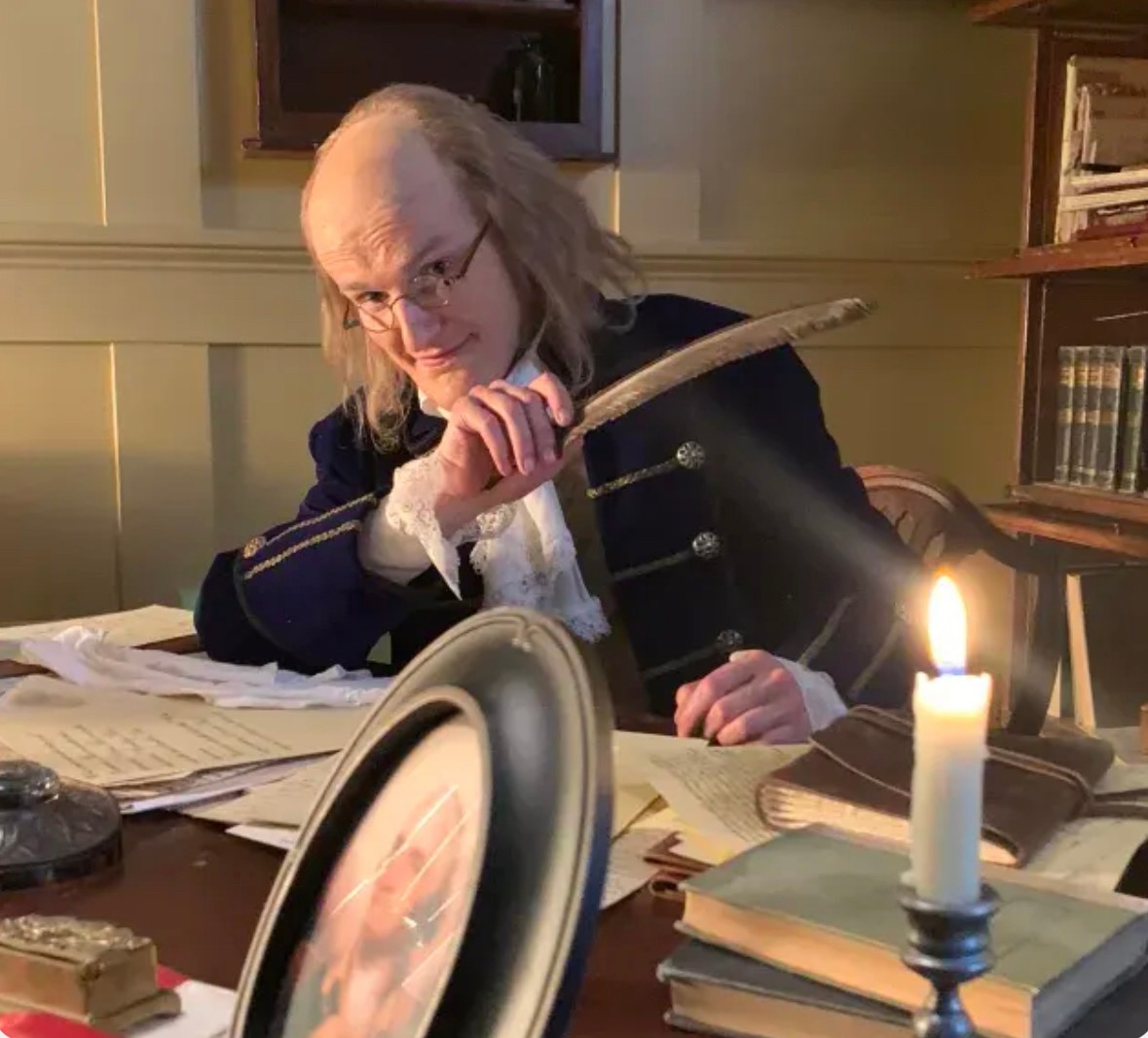
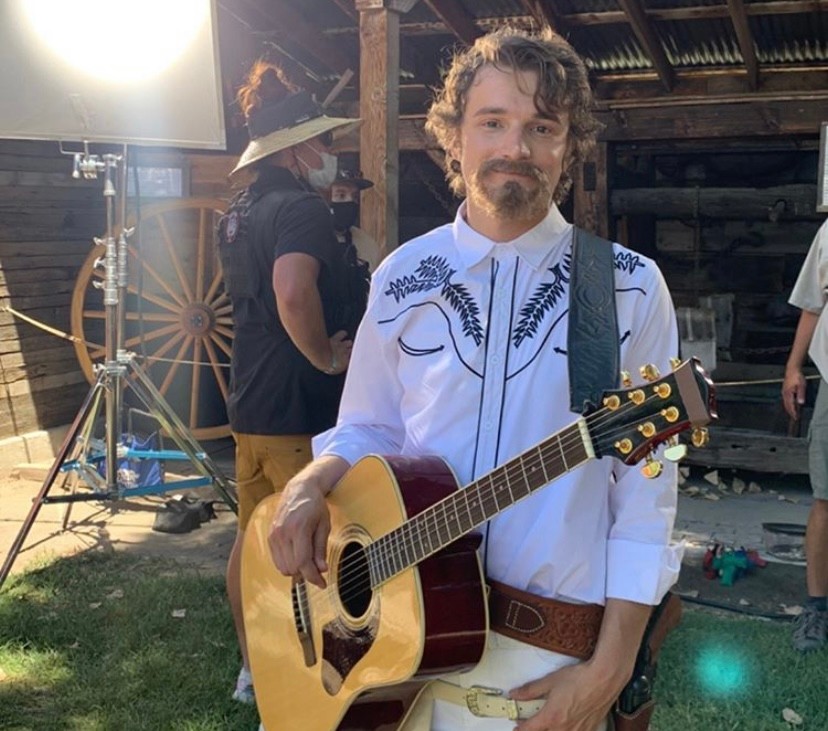
As always, we appreciate you sharing your insights and we’ve got a few more questions for you, but before we get to all of that can you take a minute to introduce yourself and give our readers some of your back background and context?
I’ve been writing and performing comedy for a while now. My work ranges from prose to big goofy sketches on TV and is all readily googlable. The SEO on a name like “Ike Flitcraft” is charmingly and effortlessly useful. The skills I’ve sharpened along the journey creating all those things are now applicable to any other gig. I may be the face of many of those pieces, but I was also often the producer and architect following the project all the way to conception to the last coat of color in the edit and contributing even the score along the way.
I’m a writer/producer/actor/composer/editor/improvisor/musician/builder whose clients range from crypto firms looking for funny copy or music to televised sketch shows looking for someone to act and produce and even high school students in search of mentoring/tutoring as they start their own creative journeys. I may seem all over the place but the reality is I’ve spent many years developing each of these skills individually and at this point they’re so complimentary I wouldn’t be able to separate them if I wanted. When you hire me, you’re hiring an “Ike” and all the things that come with that. I’m here to service the project and what you need and I’m not going to limit us from utilizing skills that would be useful.
Likewise regardless of whether my client is a brand looking for voice over work or a director looking for a pitch deck, I approach them the same way. I do not see boundaries between “business/commercial” clients and “creative” collaborations with other writers or directors or actors. I ask myself and my collaborator what the project needs. Then I ask myself:
1. How I can supply what this needs in a way that truly no one else could.
2. What hasn’t anyone done it that way before?
If the answer to number 2 is a resource I have or can create, it means the strategy is a go. We want to find that barrier to entry. It’s just a keep out sign for basic people. If someone else could offer you what I’m about to do for you, use someone else. I offer unique solutions and creative approaches to whatever challenge a client lays out. I believe a varied skill set is necessary to do this. It’s what I have that others don’t. It’s the resource that makes the barrier to entry a light suggestion to me. You can hire a slightly better composer than me, sure. But they probably won’t have written 8 features themselves and understand what it’s like to write the sort of feature they’re scoring. They might not have 5 years of experience as a post producer reminding them the timing of delivery and dropping this score into the edit WILL affect the cut itself. You can hire a slightly better copywriter than me, sure. but they won’t have performed over 1000 sketch and improv shows and have the skills and muscles as a comedian to keep your customers engaged and laughing.
I believe that any path that’s been traveled down before is burned. There is always a novel way to do something. While it’s okay to steal elements of time tested strategies, any approach to a problem I solve should be a Frankenstein’s monster of old and new approaches custom tailored to what my collaborator or client wants. This can mean a custom tailored curriculum focused on improv for a student who doesn’t like to just sit down to final draft, or a project build in an edit with a marketing client in which we start with the audio like we’re making a radio play and then work backward to go shoot the visuals after. There are an infinite number of ways to accomplish a task or create something wonderful. It makes no sense to use the same one twice. My skill set and ability to collaborate broaden the horizon of what’s possible for anyone I work with.
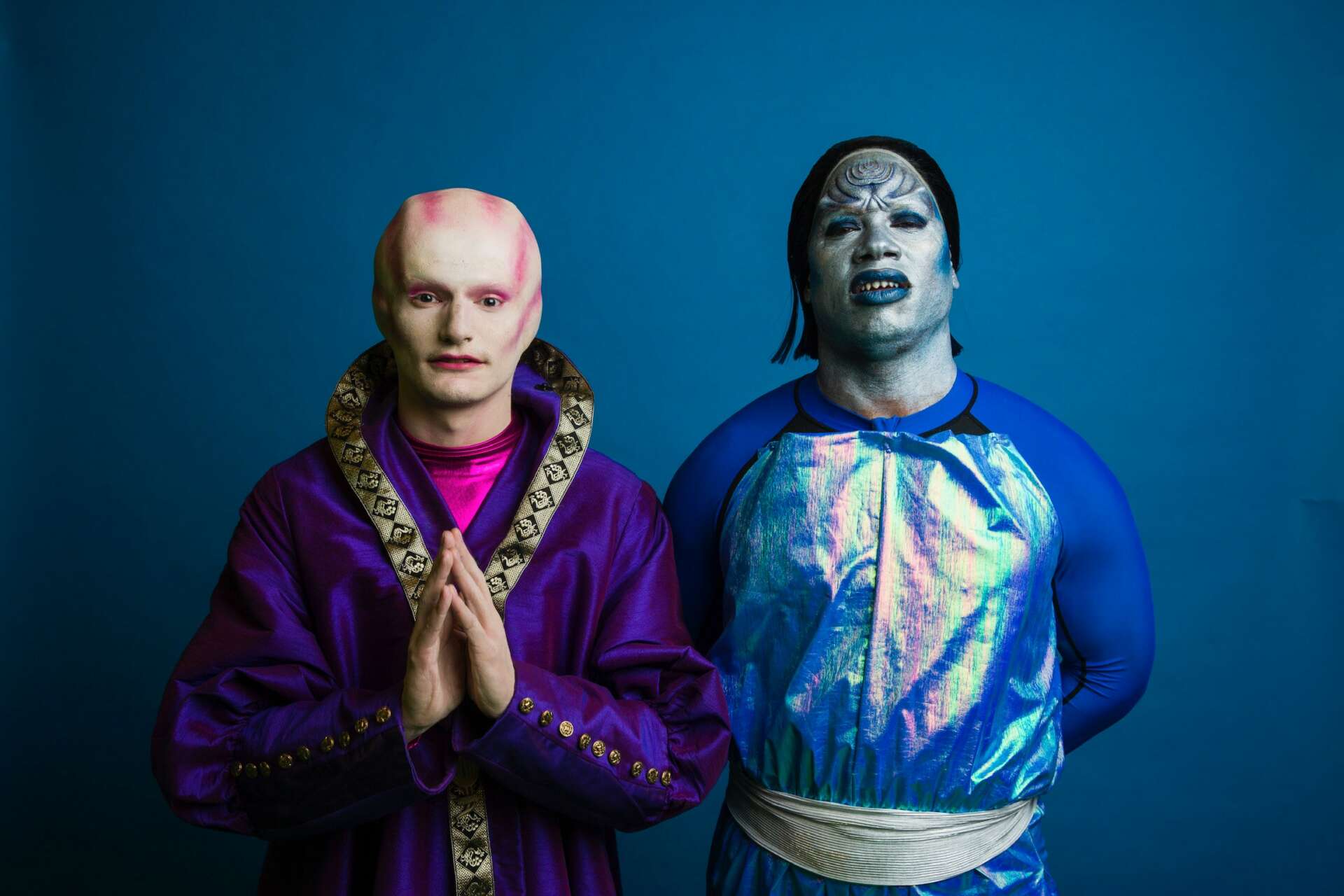
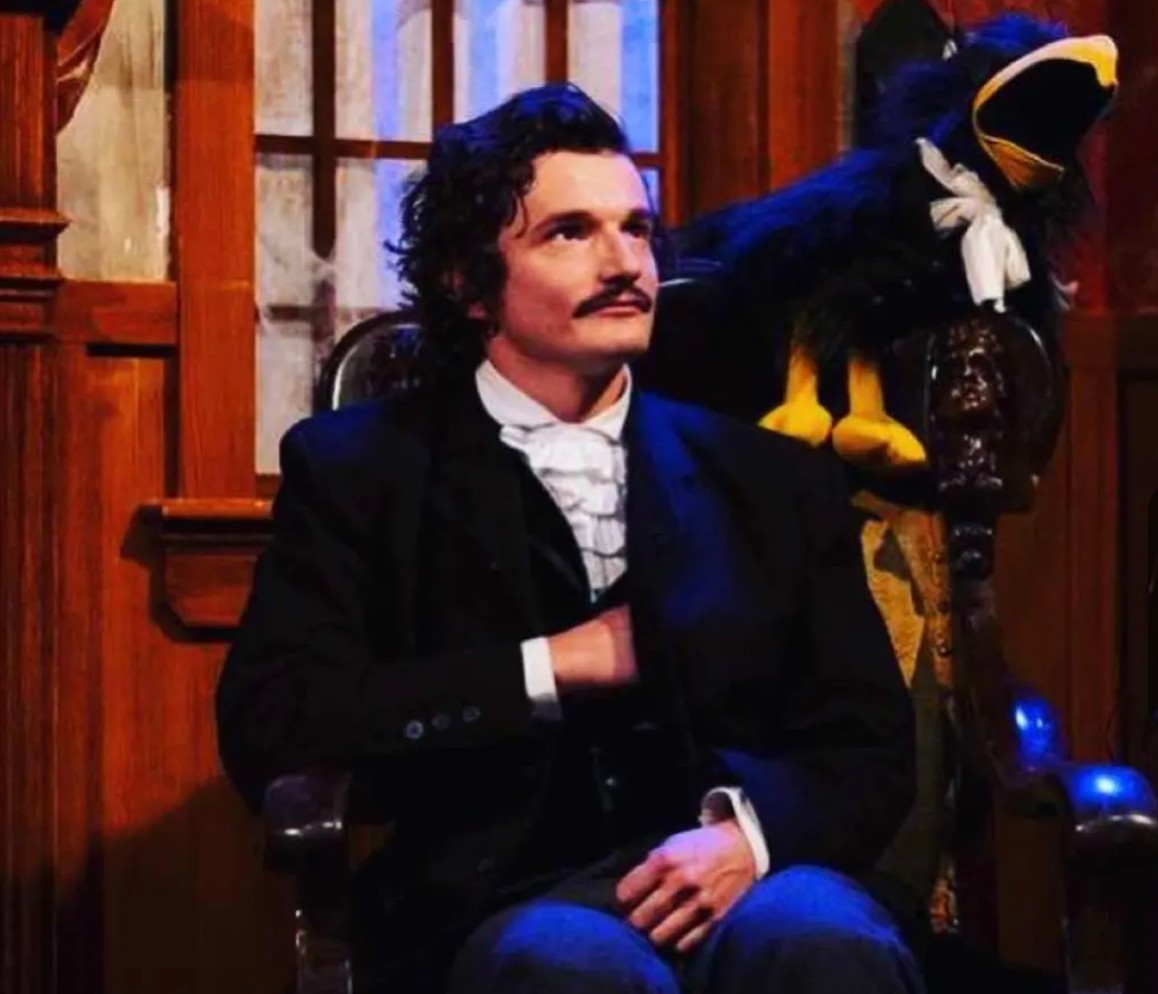
Do you think there is something that non-creatives might struggle to understand about your journey as a creative? Maybe you can shed some light?
It’s true I get my little jollies in the moments I pitch an idea to a collaborator and see them light up or be receptive to something they’d never considered. But I get my BIG jollies when a collaborator or “less creative” business client pitches something creative that I’M excited by. When we get to chase their idea, when we get to grow and add to and yes-and their authentic inventive “what if” creative idea. But you’d be shocked by how many of these exciting make-em-ups are preceded by the words “This is dumb but what if…”
So my advice to “non-creatives” is this. You are creative. Everyone is. What separates those of us who look like brilliant creative weirdos and those of us still in suits is simply the desire (and often privilege) to develop that creativity and treat dumb ideas as if they are prophesy handed to us by god herself. And so once in a while follow the “idea that’s dumb but…”. That thought alone is the barrier to entry for most people. Overcoming it once in a while is the first step in harnessing the creative power that is absolutely in you and everyone else and has been beaten out of 80% of us so you know… society can function or whatever. Then if you need someone like me to guide you and help you blow it out, great. I need rent and stuff. But the idea is already in you. Scribble something stupid down sometimes.

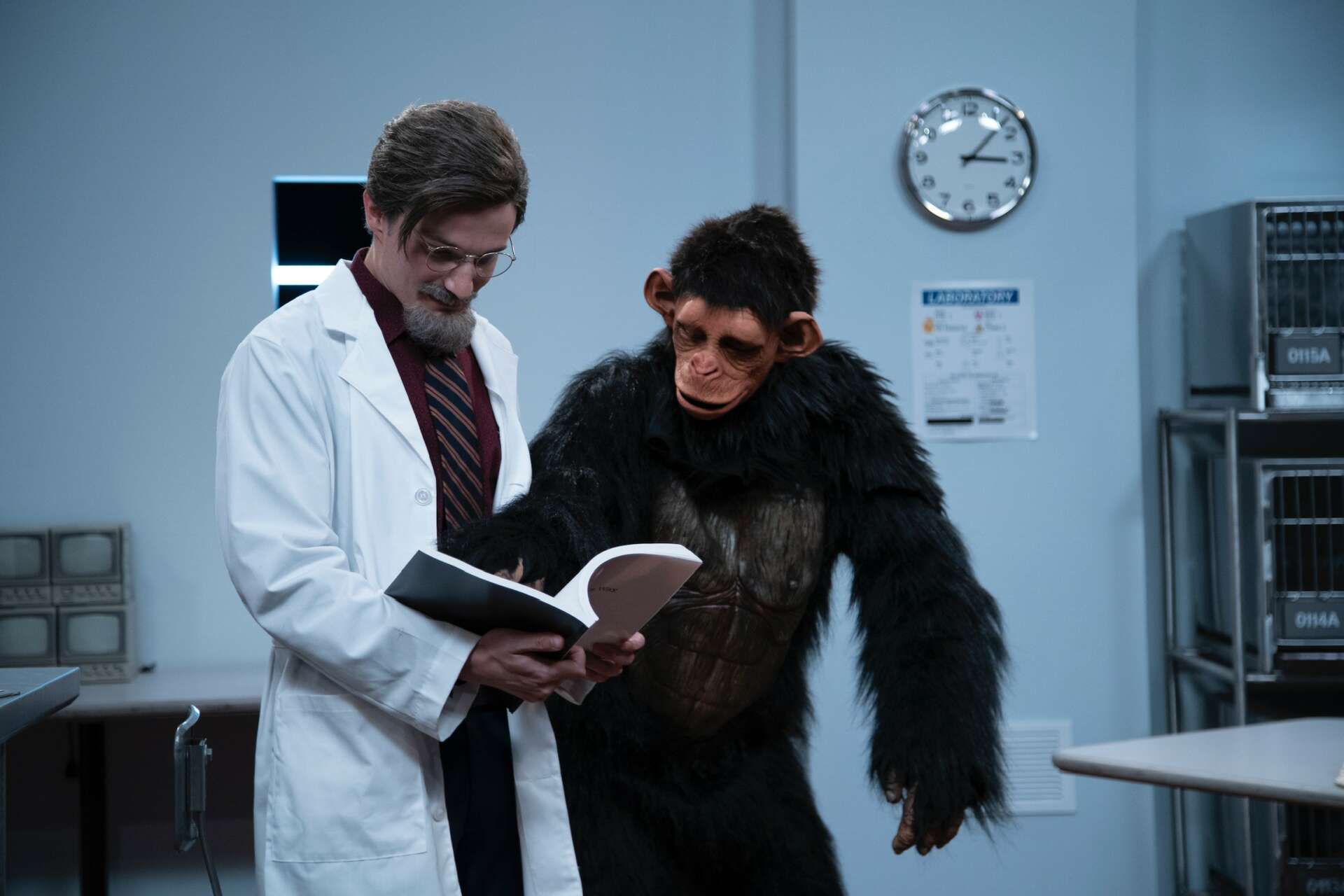
Is there a particular goal or mission driving your creative journey?
I’ve struggled with Bi-polar disorder and addiction my entire life. I think the system we live in is broken in a lot of ways. But I think our approach to healthcare and especially mental healthcare is broken the most. By my count we’re about 5 years from slipping back into the sanitariums of the 1950s and about 15 years away from slipping back into witch trials and public executions for those of us lucky enough to be cursed with the gift of a chemical imbalance.
I intend in my work on a global scale to broadcast a message of acceptance and help and understanding for those struggling with mental health. To me those struggling with mental illness deserve more compassion than even those struggling with cancer. It’s a loss of your mind, heart, and very soul when you have no one to help or guide. Which is why in a more grounded sense, every person I work or come into contact with in the ways listed above in this article, will receive a version of me that is completely vulnerable in this way. Who I am and my struggles with these things inform how I treat my collaborators and projects. Much like my skillset, hiding any one piece of this is a disservice to them and what we’re working on. I pray this encourages all those in my life client or otherwise to share with me things that may not have an outlet for otherwise. This requires a lot of trust and I’m here to say you’ve got mine from the second I meet you. This is the true use of our art and our work. It’s a place for the creator to express and work through things safely. It’s a place for the consumer to feel understood, seen, and de-stigmatized. Everything I do is aimed at a world in which those with “mental illnesses” are valued more than those born “normal”. Because the truth is, it’s a spectrum. And absolutely NO ONE is born completely normal. It’s just time to value the dark weird scary creative parts of ourselves and our society and stop leaving them starving on the street.

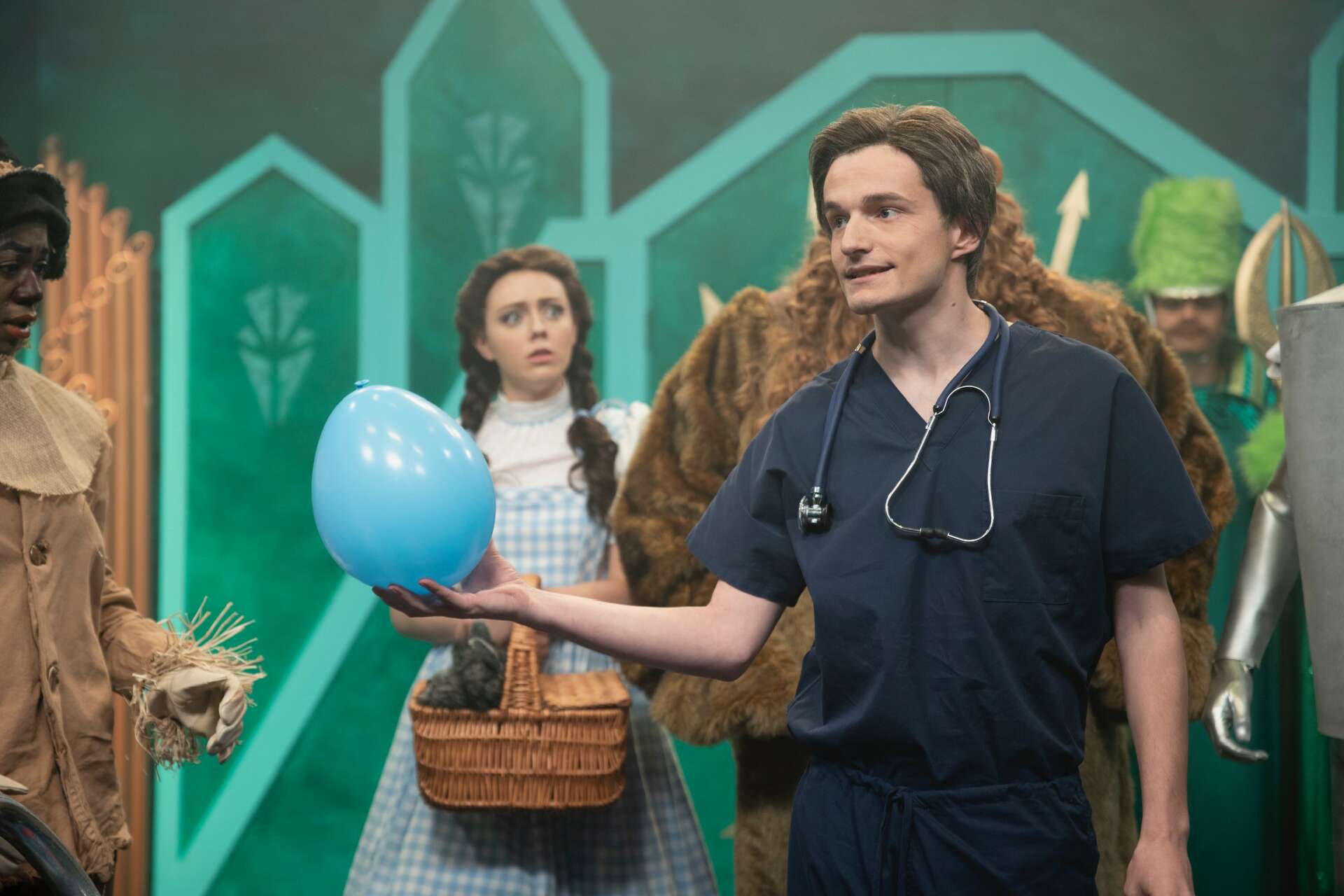
Contact Info:
- Website: https://ikeflitcraft.com/
- Instagram: https://www.instagram.com/ikeflitcraft/
- Twitter: https://twitter.com/flitcraftike?lang=en
- Youtube: https://youtube.com/playlist?list=PLGVpxD1HlmJ8pQN7WMrWqWyqlsFlzbl–&si=_RZrt-y2QeBEHq1c
- Other: https://vimeo.com/user93139752 https://www.imdb.com/name/nm7053713/ https://www.mcsweeneys.net/authors/ike-flitcraft
Image Credits
Justin Hackworth


